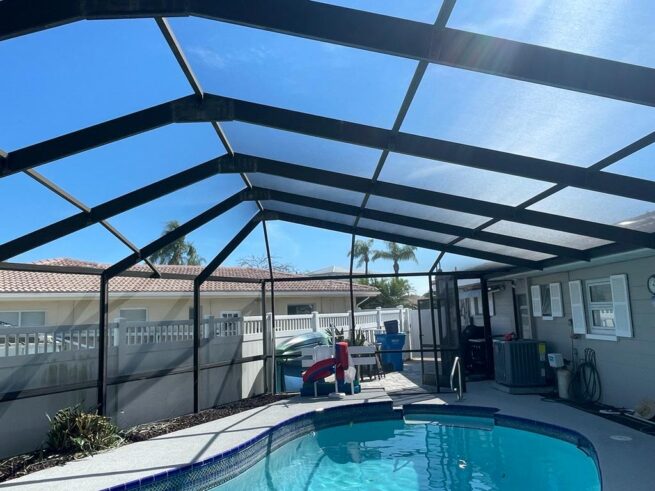
Protecting Your Investment: Tips for Extending the Lifespan of Your Patio Screens
As a homeowner, you want to make the most of your outdoor living space. One way to do this is by installing a screened-in porch or patio. Not only does this create an inviting space for entertaining and relaxing, but it also adds value to your home. However, like any investment, it’s important to protect it. In this article, I’ll provide you with tips for extending the lifespan of your patio screens, factors that affect their lifespan, and when it’s time to replace them.
Introduction to Patio Screens
Patio screens are a popular addition to outdoor living spaces. They provide protection from insects, debris, and the elements while still allowing you to enjoy the outdoors. Screens can be installed on porches, patios, and even balconies. They’re available in a variety of materials, including fiberglass, aluminum, and vinyl.
The Cost of Screened-in Porches and Patios
Screened-in porches and patios can be a significant investment. The cost varies depending on the size of the area, the materials used, and the complexity of the installation. On average, you can expect to spend between $8,000 and $25,000. However, the investment is worth it as it can add significant value to your home.
Lifespan of Patio Screens
The lifespan of patio screens varies depending on several factors. On average, screens can last between 8 to 10 years. However, with proper maintenance and care, they can last much longer.
Factors that Affect the Lifespan of Patio Screens
Several factors can affect the lifespan of your patio screens. Exposure to the elements, including sun, wind, and rain, can cause wear and tear over time. Additionally, the quality of the materials used can impact their durability. Poor installation can also lead to premature wear and tear.
Tips for Extending the Lifespan of Patio Screens
Fortunately, there are several things you can do to extend the lifespan of your patio screens:
1. Regularly Clean Your Screens
Dirt, debris, and even spiderwebs can accumulate on your screens, which can cause damage over time. Regularly cleaning your screens with a soft brush and mild soap can help prevent this.
2. Keep Them Free of Debris
It’s essential to keep your screens free of leaves, twigs, and other debris to prevent damage. Trim any nearby trees or bushes to prevent them from falling on your screens.
3. Close Them During Storms
During heavy storms, it’s best to close your screens to prevent damage from wind, rain, and hail.
4. Inspect Them Regularly
Regularly inspecting your screens for damage can help you catch any issues early on. This can prevent further damage and prolong their lifespan.
How to Maintain and Clean Patio Screens
Cleaning and maintaining your patio screens is relatively easy. Here’s what you need to do:
- Remove any debris from the screens.
- Mix a mild detergent with warm water.
- Dip a soft-bristled brush into the solution and gently scrub the screens.
- Rinse the screens with a hose.
- Allow them to air dry.
When to Replace Patio Screens
Even with proper maintenance, patio screens will eventually need to be replaced. Signs it’s time to replace your screens include:
- Torn or ripped screens
- Visible wear and tear
- Fading or discoloration
- Difficulty opening or closing screens
The Cost of Replacing Patio Screens
The cost of replacing patio screens varies depending on the size of the area and the materials used. On average, you can expect to spend between $80 and $500 per screen.
Average Lifespan of Different Types of Patios
While patio screens are essential, the patio itself is also an investment. The average lifespan of different types of patios varies depending on several factors, including the materials used and the quality of the installation.
Concrete patios have an average lifespan of around 25 years. Stone patios can last up to 50 years, while brick patios can last up to 100 years. However, proper maintenance is essential to prolong their lifespan.
Conclusion and Final Thoughts
Adding a screened-in porch or patio to your home is an excellent investment, but it’s important to protect it. By following these tips for extending the lifespan of your patio screens, you can protect your investment and enjoy your outdoor living space for years to come. Remember to regularly clean your screens, keep them free of debris, and inspect them for damage. When it’s time to replace them, be prepared for the cost, but know that it’s worth it. Finally, remember to properly maintain your patio to ensure it lasts as long as possible.




